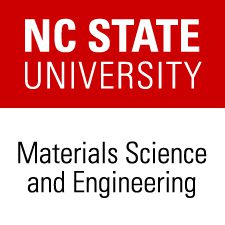Coatings protect, preserve, and provide. But don’t just take our word for it! Learn from some amazing Ph.D. candidates in coatings science who share facts about some of the impactful and exciting coatings applications that are part of our everyday lives and have the potential to shape our future.
Supercharge Your Career
Join ACA & get access to CoatingsTech magazine! It’s free for students!
SIGN UP NOW Discover the Benefits of ACA Membership


- Coatings Provide For Our Future.
- Coatings Protect The Surfaces We Depend On Everyday.
- Coatings Preserve Our Materials, So They Last Longer.
California Polytechnic State University

Kenneth N. Edwards Western Coatings Technology Center
In addition to its comprehensive undergraduate concentration in polymers and coatings chemistry, Cal Poly offers a Master of Science degree in Polymers and Coatings Science through its unique program that was developed with close ties to industry. Through lecture and laboratory courses, students gain academic preparation in polymers and coatings science, and then conduct a rigorous industrial internship or industry-sponsored thesis research. During their internships, students specialize and develop advanced skills through directed study in areas related to their internship work. The program is designed to prepare students for challenging careers in the polymers and coatings industry. The program also provides an excellent background for doctoral studies in areas related to polymer and coatings science. Cal Poly offers intensive short courses, testing services, contract research and other collaborative opportunities to industry through the Kenneth N. Edwards Western Coatings Technology Center.
University of Massachusetts Amherst

Department of Polymer Science & Engineering
At the University of Massachusetts Amherst, the Polymer Science & Engineering Department (PSE) offers a dynamic and inclusive Ph.D. program with an international reputation for defining the frontiers of polymer science and engineering research. The program’s mission is to prepare the future leaders of the field through rigorous research programs and teaching excellence. Exclusively focused on doctoral students, PSE allows for concentrated study without the obligation of teaching assistantships, enabling students to dedicate more time to their coursework and foundational research for their Ph.D. dissertations. This interdisciplinary program encompasses core principles in synthetic chemistry, physical chemistry, materials science, and engineering—advancing the field of polymers and soft materials and fostering a collaborative community that enriches scholarly pursuits and innovations in polymer science and engineering.
Clemson University

The Clemson University Department of Materials Science and Engineering establishes in students a broad foundation in the science and engineering of materials. After completing the General Engineering requirements and declaring the Materials Science & Engineering major, sophomores are introduced to metals and ceramics, polymer science, thermodynamics, mechanical behavior, and kinetics. Classroom experiences for juniors are integrated with laboratory work in the processing, fabrication, and characterization of materials. Seniors may then focus on a particular area of interest, such as Inorganic Materials (ceramics, glasses, metals, optical, and electronic materials) or Polymeric Materials (plastics, elastomers, fibers and fibrous materials, films, coatings, and adhesives). Fundamentals of research are developed and carried out in a senior capstone design project. Students develop lifelong learning skills and are prepared for exciting careers in industry and for professional and graduate school.
North Carolina State University

Department of Materials Science and Engineering
NC State Materials Science and Engineering (MSE) promotes discovery, inquiry and creative opportunities through mentored research experiences for graduate and undergraduate students. With a sound materials science and engineering education, we advance the understanding and application of scientific principles, enhance economic development, and improve the quality of life of our citizens through teaching, research, and outreach programs. In addition to ensuring that our students are exposed to modern materials science and engineering principles and have access to modern equipment and technology to support their educational experience, the department seeks to create a team-oriented environment throughout our academic enterprise. Our goal is to produce well-rounded materials scientists and engineers who function effectively in the technical arena and possess the skills to assume leadership roles in industry, academia, and government. There is something for every materials scientist in our six research areas: Computational Materials Science; Electronic, Optical, and Magnetic Materials; Energy Materials; Materials Characterization; Soft Materials and Biomaterials; and Structural Materials.
University of Southern Mississippi

School of Polymer Science and Engineering
The University of Southern Mississippi’s School of Polymer Science and Engineering is recognized worldwide for the achievements of its faculty, its level of research excellence, and the quality of its students. The school is home to numerous scientific, educational and outreach programs, institutes, and symposia sponsored by private, industrial, and federal agencies. The school additionally organizes the yearly International Waterborne, High-Solids, and Powder Coatings Symposium. This event features themed sessions discussing various aspects of modern coatings science and technology. Running for 52 consecutive years, the symposium highlights cutting-edge advancements and research contributions from both academic and industrial experts. More information can be found here.
Eastern Michigan University

Polymers & Coatings Technology
Founded in 1849, Eastern Michigan University (EMU), through its GameAbove College of Engineering and Technology, offers three specialized programs in Polymers and Coatings (P&C): 1) Graduate Certificate— the only fully online program in the country; 2) M.S. in P&C Technology; and 3) Ph.D. (Technology) with P&C as a concentration. The Graduate Certificate program is designed for professionals who work in the paints, coatings, and related industries, offering them the opportunity to advance their education and career at their own pace, without having to take off from work. For students with undergraduate credentials in chemistry, polymers, or engineering, the M.S. program builds expertise for roles in the field of polymers and coatings technology. The Ph.D. (Technology) program with its P&C concentration provides graduates with a broader understanding of technology and equips them with advanced research experience.
EMU is also home to the Coatings Research Institute (CRI), an R&D facility that aims to solve the most complex challenges of the coating industry.
North Dakota State University

Coatings and Polymeric Materials
Since 1906, North Dakota State University has been engaged in extensive research and education focused on paints and coatings. The university’s distinguished Coatings and Polymeric Materials (CPM) program has garnered worldwide recognition for its expertise in paints, coatings, and polymers. For those seeking advanced degrees, the graduate-level CPM programs lead to either a Master of Science or a Ph.D. degree. There is also an accelerated BS/MS program. Graduates from CPM degree programs are in high demand within the industry, underscoring the program’s reputation for producing highly skilled professionals.
Louisiana State University

Department of Chemistry
Louisiana State University’s (LSU) Department of Chemistry is recognized for its robust Macromolecular Science research, with five out of 30 faculty members engaged in polymer-related studies. The department boasts advanced NMR, X-ray, and mass spectrometry facilities and is home to the Shared Laboratory for Macro and Bio-Macromolecular Research (SLMBR). This facility supports a wide range of cutting-edge research in both synthetic and bio-macromolecular systems.
One of the department’s notable innovations comes from Professor John A. Pojman, who, alongside his students, has pioneered a cure-on-demand technology for thiol-epoxy and thiol-acrylate coatings. By using ammonia vapor, which was generated through the urease-catalyzed hydrolysis of a urea solution containing watermelon seed powder (WMSP) as a source of urease enzyme, these zero-VOC, 100% solids coatings offer significant benefits. The formulations, which can be stored for up to a year, are applied with fillers and cured on-site, making them both environmentally friendly and highly practical for industrial applications.



